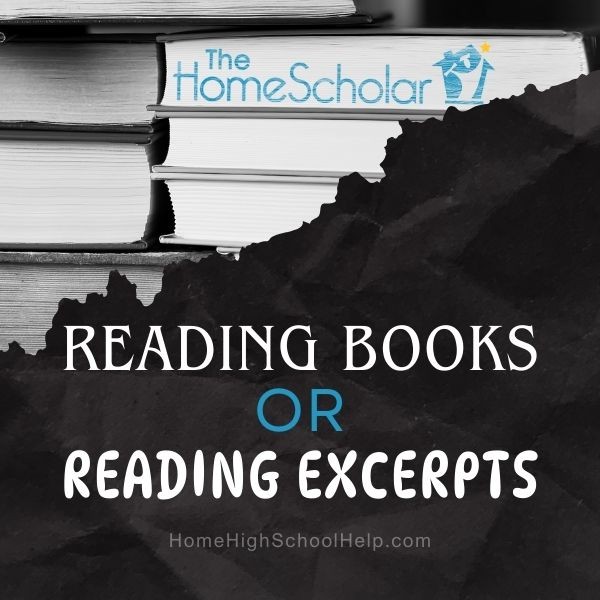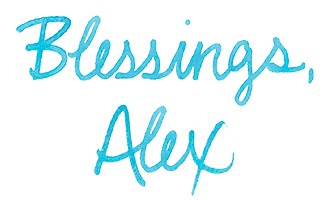I recently picked up a high school textbook called “American Literature” to see what public school kids were reading these days.
First of all, it was HUGE – much bigger than the dictionary. Yikes! No wonder kids have back pain! When I looked inside, I had fond feelings from my own high school honors English classes. I remember reading aloud, and some really incredible projects we got to do. We read so many great (and some not so great) classics.
Then I remembered some of my public-school friends who only read one or two books a semester. Wow – really?? Can that really be all that was required? I don’t say this to brag, but my class read about 4-5 books a semester.
The American Literature book I was looking at seemed very fun, but it did NOT contain whole books. There were multiple books mentioned and discussed, but the textbook only provided selections and excerpts from the book. This made me a bit sad! How much context these kids are missing! How many funny lines or clever turns of phrase. Not to mention, you can never really get to know a character if you only ever read a paragraph of them!
One mom of college aged boys reached out to me saying that her sons were not enjoying their University Scholars Honors Program and their study of the great books. It wasn’t because the class was too hard, or the teacher was strict, or even because they didn’t want to get out of bed for the class. No, it was because all they read was excerpts! The boys were used to reading WHOLE books start to finish. They felt they were missing out on the grander story these books contained by only getting to read snippets.
At this point, I’m sure you can tell that I am a “whole book” type of gal and there are lots of reasons for my belief. But before I get up on my soapbox, let me mention that it’s perfectly fine to include book excerpts on your reading list. On your transcript, you can include the word “Excerpt” by the book title if you like. It’s ok to have a book list of just 6 books a year. It’s also ok to have a book list with 60 books per semester. Some parents choose to include textbooks as well as literature on their reading list. You can (and should!) include all reading: for school, for pleasure, magazines, newspapers, current books, great books, classics, and “fluff.”
Including a variety of books on your reading list is helpful. I have had colleges say they want homeschoolers to show they have read at least some current books, to show they aren’t too sequestered. The old classics are great, but so are current works! The stigma around homeschoolers is slowly going away, but we’ve still got some proving to do.
Now is it ok if I step on my soapbox? Great.
Here are my reasons why reading entire books in high school might be more beneficial than just reading the excerpts.
1. Comprehension and Critical Thinking
Reading the entire book will give students a deeper understanding of the narrative, the plot, the characters, and the setting which allows for “deep reading”. Deep reading (probably what many homeschoolers probably consider just “reading” but the internet had to rename) can be defined as engaging with a text in a thoughtful, critical, and reflective way so that the reader is able to make inferences from what they’ve read and achieve higher levels of comprehension, critical thinking, and empathy. Studies suggest that when students are exposed to an entire text, they develop a richer understanding of the themes, characters, and plot development, all of which enhance their analytical and interpretive skills. Very important.
2. Character Development and Emotional Connection
Full-length books allow the reader to gradually get to know the main characters and better see their character arc and how they grow, which helps students to create emotional connections and find similarities between themselves and the protagonists. Research in educational psychology suggests that these emotional connections boost the readers engagement and motivation to read. Students are more likely to experience empathy and perspective when they follow characters through an entire journey, something that excerpts do not typically allow for.
3. Better Reading Stamina and Attention
In an age of social media and instant gratification, the discipline of reading a full-length book can help a student to slow down, build their reading stamina, and their focus, skills crucial for both academic success and life-long learning. The fact of the matter is, reading a long and boring book develops patience and attention to detail. We parents can take steps to make sure the assigned books aren’t dry as the Sinai Desert, and we can encourage stamina and patience through diligent reading. When I was in high school, my book nemesis was Moby Dick. Whoever thought to pay an author by the word never considered that said author would write every word imaginable to fill pages. By the end of that book, I was equal parts glad to be rid of it, and satisfied by my accomplishment and discipline.
4. Exposure to Complex Narrative Structures
Full-length books expose students to complex narrative structures, including nonlinear plots, flashbacks, and multiple points of view that are not always evident in excerpts. These structures challenge students to follow more intricate storylines, helping them develop a stronger grasp of more advanced literary techniques.
I could wax poetic a little longer, but I’m sure you see the point. Reading whole books provides cognitive, emotional, and academic benefits that are crucial for a student’s development, besides the simple satisfaction of finishing a good book. Excerpts have their place, but they shouldn’t be relied upon in the place of whole, full-length books.
Anyone else have a book nemesis? Anyone have tips on balancing full-length books with excerpts?
Share in the comments! I want to see!





